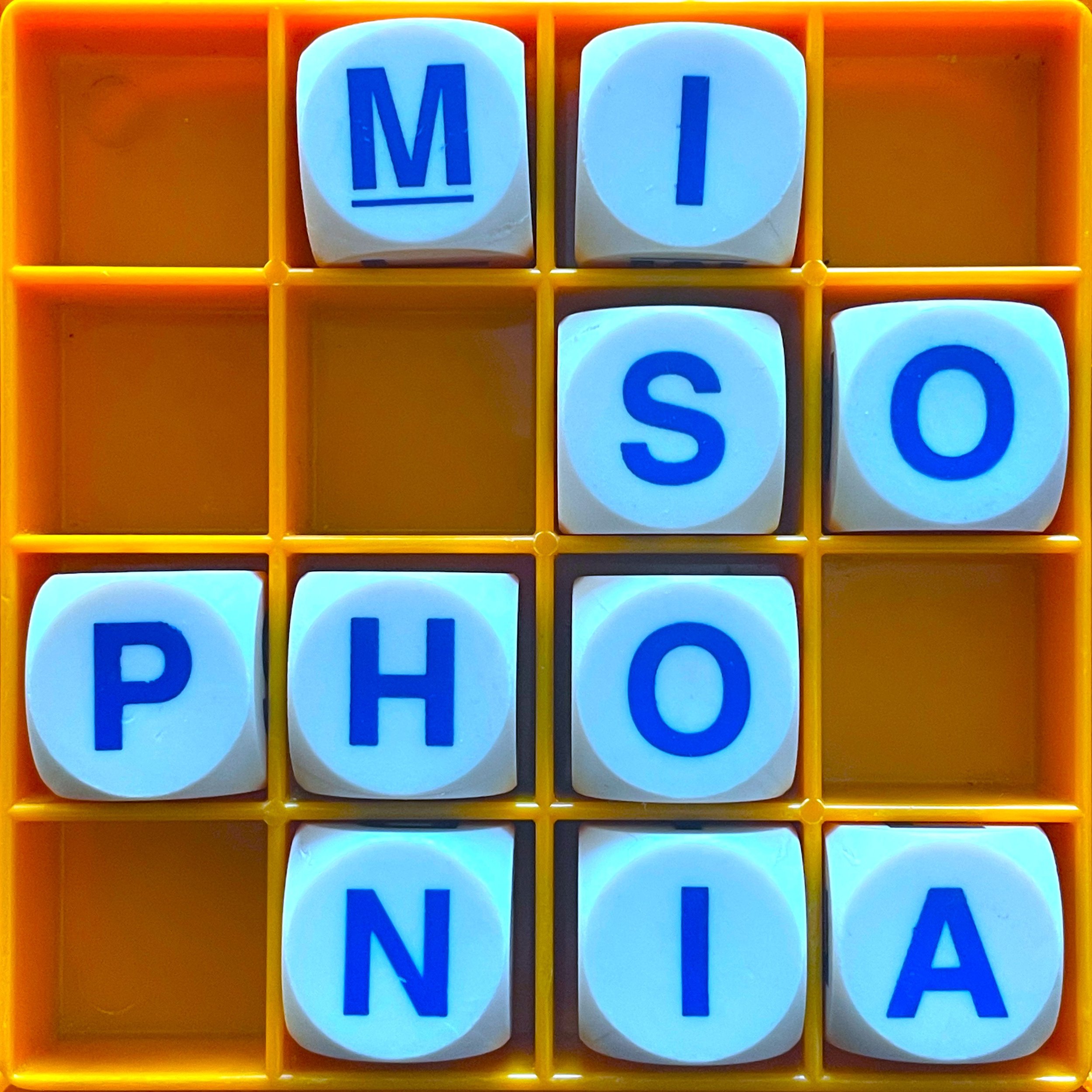The word 'misophonia' describes a condition that statistically, 20 per cent of you have: an extreme reaction to certain sounds. "For me, it was a relief to have a word for what I'd been experiencing," says Dr Jane Gregory, author of the new book Sounds Like Misophonia: How to Stop Small Noises from Causing Extreme Reactions, "because I thought for a long time that I was really uptight or maybe a bit controlling over other people, and that that was a problem with my character, as opposed to it actually being a problem with the way that my brain processes sounds." Jane offers advice for handling misophonia, including some very simple verbal techniques.
Read moreAllusionist 167. Bonus 2022
What do the hippocampus, homophones, Little Women, worrying and egg hacks have in common? They all star in the 2022 parade of Allusionist bonus bits! This year's guests provide some extra fascinating facts, thoughts and feelings: in order of reappearance, Jing Tsu, Morénike Giwa Onaiwu, Tim Clare, Stephanie Foo, Lewis Raven Wallace, Charlotte Lydia Riley, Hannah McGregor, Kristen Meinzer and Jolenta Greenberg.
Read moreAllusionist 138. Mind My Mind
Crazy, insane, nuts, mad, bonkers, psycho, schizo, OCD - casual vocabulary is strewn with mental health terms, but perhaps shouldn't be? Psychotherapist and podcaster Lily Sloane talks about what we're really saying when we use such words.
Read moreAllusionist 91. Bonus 2018
Throughout the year, the people who appear on the Allusionist tell me a lot of interesting stuff. Not all of which is relevant to the episode they initially appeared in, so I stash it away in preparation for this moment: the annual bonus episode! Get ready for gory 19th century London slang, the rise and fall of superhero capes, the post-WW1 trend for nudism, and more.
Read moreAllusionist 14 rerun: Behave
Sometimes words can become your worst enemy. Clinical psychologist and cognitive behavioural therapist Dr Jane Gregory tells how to defuse their power.
Read moreAllusionist 24: Spill Your Guts
iTUNES • RSS • MP3
It's cathartic; it's useful historical records; and it might help you behave better on public transport. Neil Katcher and Dave Nadelberg from Mortified discuss the art and practice of keeping a diary.
ADDITIONAL MATERIALS:
This website has a fair amount of information about Samuel Pepys, including his diary entries describing the Plague and the Great Fire of London - and some of the entries he wrote in code because they're a bit saucy.
Pepys wrote his diary in shorthand, so snoopers couldn't understand it. Read a translation at Project Gutenberg.
Anne Frank, meanwhile, edited a version of her diary for possible public consumption, which was the one published in 1947. The longer, private version was recently published.
Mortification comes in many forms. All of which are funnier when they happened to someone else.
My friend Jo Neary has been keeping an illustrated diary for decades. Occasionally, she shares some pages online, to my delight.
Which of these medical acronyms will follow in LOL's footsteps and be in common use in textspeak within the next 30 years?
Having trouble translating DAMHIKT, UDS or POTF? Acronym Finder is here to help.
RANDOMLY SELECTED WORD FROM THE DICTIONARY:
horst
CREDITS:
Dave Nadelberg and Neil Katcher run Mortified. It's a weekly podcast, a stage show in many cities around the world, a documentary, a TV series, and books; find all these Mortified things at getmortified.com.
This episode was produced by me, Helen Zaltzman. Thanks for the advice, Eleanor McDowall and Martin Austwick (who also provided all the music).
Communicate with me publicly at facebook.com/allusionistshow, twitter.com/allusionistshow and twitter.com/helenzaltzman.
- HZ
Allusionist 14: Behave
iTUNES • RSS • MP3
Sometimes words can become your worst enemy. Clinical psychologist and cognitive behavioural therapist Dr Jane Gregory tells how to defuse their power.
NB: Today's show concerns mental health, and the discussion nudges some topics which may not be comfortable for everybody. So if you have concerns, please sit this episode out, and return in two weeks for the next one.
ADDITIONAL READING:
When Jane has time around working with her patients, she writes very interesting pieces about CBT at cognitivebehaveyourself.com.
Here's a summary of CBT from the Royal College of Psychiatrists.
Have any of you played a mental health-themed game like Hellblade? How was it?
Philippa Perry's psychotherapy comic book Couch Fiction is rather wonderful. Read this interview with her then buy a copy from your local bookshop because I can't bring myself to link to Amazon.
Read a brief history of tennis AKA 'sphairistike'.
Here's a load of tennis etymology.
The transcript of this episode is here.
RANDOMLY SELECTED WORD FROM THE DICTIONARY:
virga
CREDITS:
Dr Jane Gregory is a clinical psychologist working in the NHS and her own private practice. Find her at cognitivebehaveyourself.com and @CBYourself
This episode was produced by me, Helen Zaltzman. All the music is by Martin Austwick. Hear and/or download more at thesoundoftheladies.bandcamp.com.
Say hello to me at facebook.com/allusionistshow, twitter.com/allusionistshow and twitter.com/helenzaltzman.
I'll be back in a fortnight with a new episode. If you like this show, do tell someone about it. Not in a creepy pyramid scheme way; play it cool.








